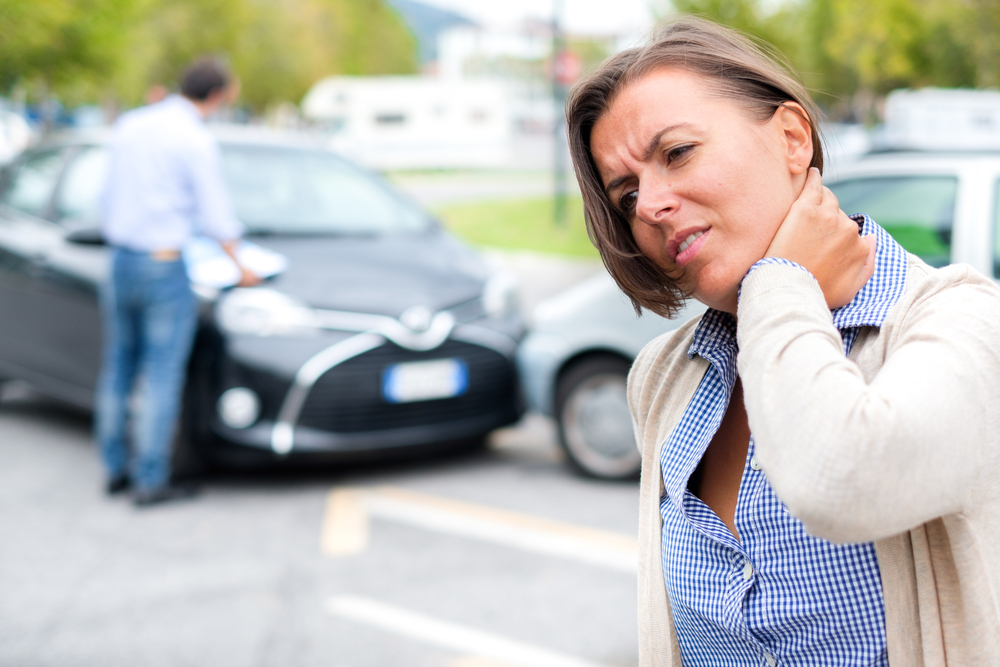
If you are involved in an automobile accident, you may have suffered property damage to your vehicle as well as injuries to your person. Depending on which party or parties were at fault for the crash, you may be entitled to recover compensation for expenses and losses that you incur due to vehicle damage and personal injury. However, you may inadvertently jeopardize your rights to compensation by making certain mistakes after an accident. Here are five things you should avoid doing after being in a vehicle crash.
Don’t Leave the Scene
Under Florida law, drivers who are involved in a collision with other vehicles (including parked vehicles), bicyclists, pedestrians, or stationary property are required to stop at or immediately return to the scene of the crash to render aid to anyone who may have been injured in the accident and to exchange information with or leave information for the owner of any damaged property. You also may not leave the scene when law enforcement has been called. If you leave the scene of a vehicle crash before discharging your duties under state law or before you are allowed to go by an investigating police officer, you may not only be charged with a crime but it also serves as evidence of consciousness of guilt for fault for the accident, even if you ultimately were not responsible for causing the crash.
Don’t Leave Your Vehicle in the Path of Traffic
If your vehicle was not disabled by a crash, you should not leave it in an active traffic lane, since it can pose a hazard to oncoming traffic, and if you are still in or standing around your vehicle a risk of injury from a second collision as well. If you can do so, pull over to the shoulder and activate your hazard lights or pull into a parking lot to exchange information with the other driver or wait for the police to arrive.
Don’t Clean Up the Scene
You also should not attempt to clean up debris that may have broken off from the vehicles. By standing in the roadway you put yourself at risk of being hit by oncoming traffic. In addition, trying to clean up the crash scene might be construed as tampering with evidence or tampering with a crime scene. Leave the cleaning of the road to the authorities.
Don’t Admit Fault
Never admit fault for the accident, even if you think you caused the crash. In addition, while it may seem natural and sympathetic to offer apologetic words, these too might also be construed as an admission of fault. You should also avoid discussing the moments leading up to the accident, such as telling the other driver that you did not see them, that you were on your cell phone, or that you were feeling tired. While you might believe that you were at fault for the crash, you may not have all the evidence that might show that the other driver or another party was responsible for causing the accident.
Don’t Share Personal Details with the Other Driver(s)
Finally, while you need to exchange insurance information with the other driver or drivers involved in the accident, you do not need to provide any other personal details. You should not have to offer your phone number, email address, home address, or place of work. If another driver in the crash needs to contact you, they can do so through your insurer.
Contact a Lake Worth Personal Injury Lawyer to Discuss Your Auto Accident Case in Florida
Did you or a loved one sustain serious injuries due to a car accident in Florida? Don’t let the medical bills pile up while you wait for the negligent party or their insurance company to do the right thing. Right now, you need an aggressive personal injury attorney on your side, fighting to get you the compensation you need, want, and deserve. The skilled attorneys at Gonzalez & Cartwright, P.A. represent clients injured because of auto accidents in Miramar, Coral Springs, Davie, Boca Raton, and throughout Florida. Call (561) 533-0345 or fill out our online contact form to schedule a free consultation about your case. We have an office conveniently located at 813 Lucerne Ave., Lake Worth, FL 33460, as well as offices in Pompano Beach.
The articles on this blog are for informative purposes only and are no substitute for legal advice or an attorney-client relationship. If you are seeking legal advice, please contact our law firm directly.